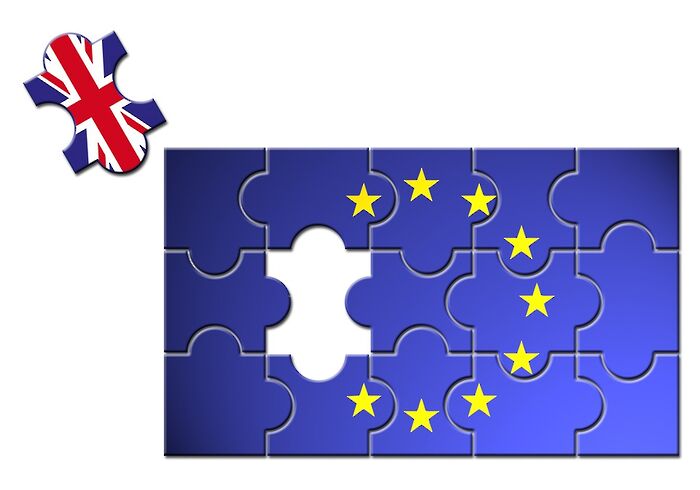The EU Withdrawal Bill is a cynical power grab
The government’s hypocritical approach to Brexit has once again been exposed, explains columnist Tom Nixon in his debut column

The government's ‘Great Repeal Bill’ has been sold to us as a simple administrative duty, one that is necessary to fulfil the will of the people. As always with Brexit-related bills, opponents of the proposed changes have been labelled as blocking a democratic process. In reality, however, it is the government – those who are pushing forward the bill – that are going against democracy.
The bill – formally known as the European Union (Withdrawal) Bill – passed the second reading stage by 326 votes to 290 after two days of debate. This means a majority of MPs support the bill's broad principles, but not necessarily every detail. The claim is that the bill is a simple but vital part of leaving the EU. Its primary aim is to ensure that Britain extricates itself from EU Law but retains a functioning legal framework after leaving the EU. The EU laws we currently have will thus theoretically remain, but because of technical difficulties ministers will be given powers to alter them. Without correction some laws would not work, for example because they refer to EU institutions and not English ones.
This sounds like a sensible solution to what could be a cumbersome and technical challenge, but there are fundamental issues with this approach. One of the main objections from opposition parties is that the new ministerial powers granted to make these 'technical' changes effectively bypass parliament. These have been labelled Henry VIII powers' as they effectively give licence for ministers to change the UK's laws without consulting democratically elected MPs in parliament.
“It is important that if we accept the result of the referendum, we do not undermine our very democracy.”
Other issues raised include the right of parliament to have a say in the final Brexit deal, something not specified in the bill’s current form. The same principle of parliamentary scrutiny that was upheld in the supreme court ruling earlier this year (over the right of MPs to vote to leave the EU) is therefore threatened by the repeal bill. In addition, the EU Charter of Fundamental Rights, a document that currently protects the citizens of the UK, is not set to be restored after Brexit. Amendments for these issues and others are being tabled by MPs from across the political spectrum, highlighting widespread concern with the bill in its current form.
Opposition parties have condemned the bill as avoiding parliamentary scrutiny. In response, shadow Brexit Secretary, Sir Keir Starmer, said the bill was a "naked power grab" by the government, adding that "this is a deeply disappointing result.” It is not only opposition MPs that have problems with the bill in its current form, Conservative MPs concerned about the legislation had already tabled a number of amendments to "remove the excesses of the bill" and to "make considerable improvements.”
This approach exemplifies the double standards with which the government has sought to push their own Brexit agenda. Claims that the will of the people is sullied by any involvement by opposition parties and that any interpretation of Brexit other than the government's own is somehow heretical are absurd. This attitude was also apparent in the government's attempt to pass the Brexit bill without a vote in parliament. It was a supporter of the remain campaign, Gina Miller, that championed the public's right to be represented by elected MPs in her case to the supreme court. If the government claims that the British public voted to “bring back control,” then the suggestion that powers be stripped from the very representatives they have elected to achieve this is hypocritical.
It is crucial that parliament is deeply involved in the Brexit process. The question on the ballot paper was “Should Britain remain a member of the EU or leave the EU?” The government cannot claim to have the sole interpretation of this answer. As such, parliament as a whole has to decide the course of Brexit. The body of MPs in parliament is not the public, but they are the best gauge of public opinion we have, especially in light of how recent our latest election was.
Parliament’s purpose is to debate those issues that are most important to the electorate. In the case of the ‘Great Repeal Bill’, and all other aspects of Brexit, it should have a pivotal role in determining the future of our country. It is vital that the government is held to account over such a far-reaching and important process.
The government simultaneously justifies its actions with claims of ‘democratic will’ and attempts to override the role of our democratic institutions. The UK's political system does not normally work by referenda and sweeping ministerial powers; it is important that if we accept the result of the referendum, we do not undermine our very democracy
 News / Deborah Prentice named highest-paid Russell Group VC6 January 2025
News / Deborah Prentice named highest-paid Russell Group VC6 January 2025 Fashion / The decline of Depop and the rise of Vinted5 January 2025
Fashion / The decline of Depop and the rise of Vinted5 January 2025 Features / An investigation into women and sex at Cambridge7 January 2025
Features / An investigation into women and sex at Cambridge7 January 2025 Film & TV / Squid Game season 2: an entertaining but uninspired sequel8 January 2025
Film & TV / Squid Game season 2: an entertaining but uninspired sequel8 January 2025 News / News in Brief: SU says sayonara to sabbs (again) and Cunk comes to Cambridge5 January 2025
News / News in Brief: SU says sayonara to sabbs (again) and Cunk comes to Cambridge5 January 2025






